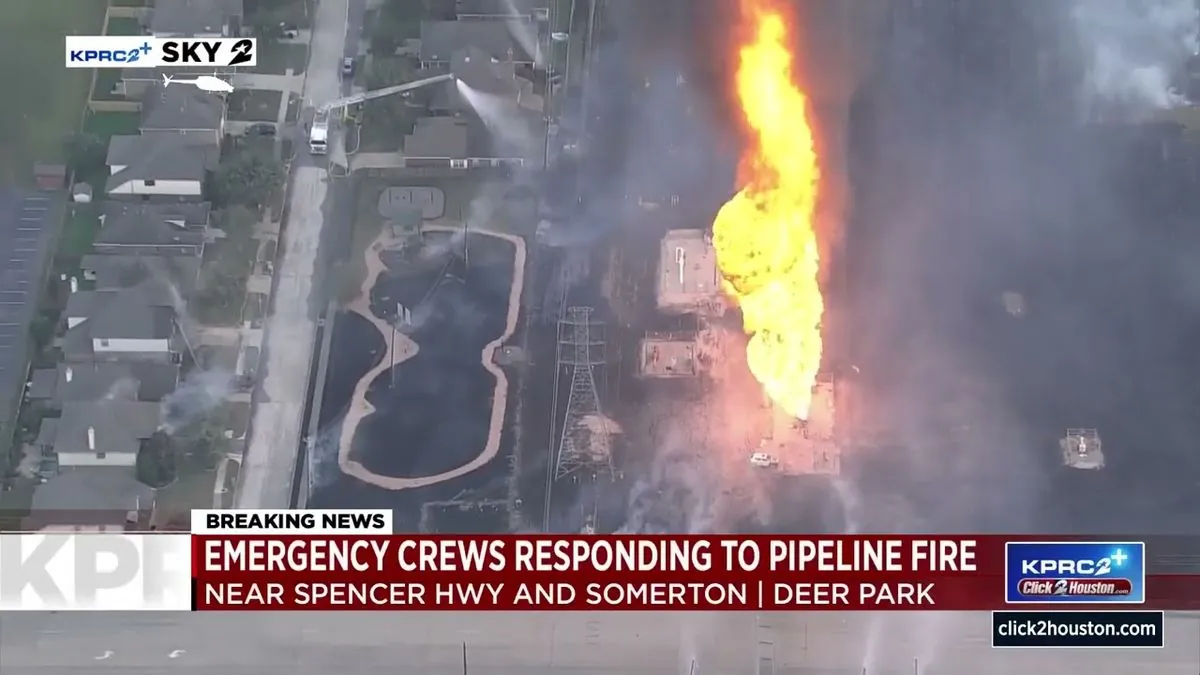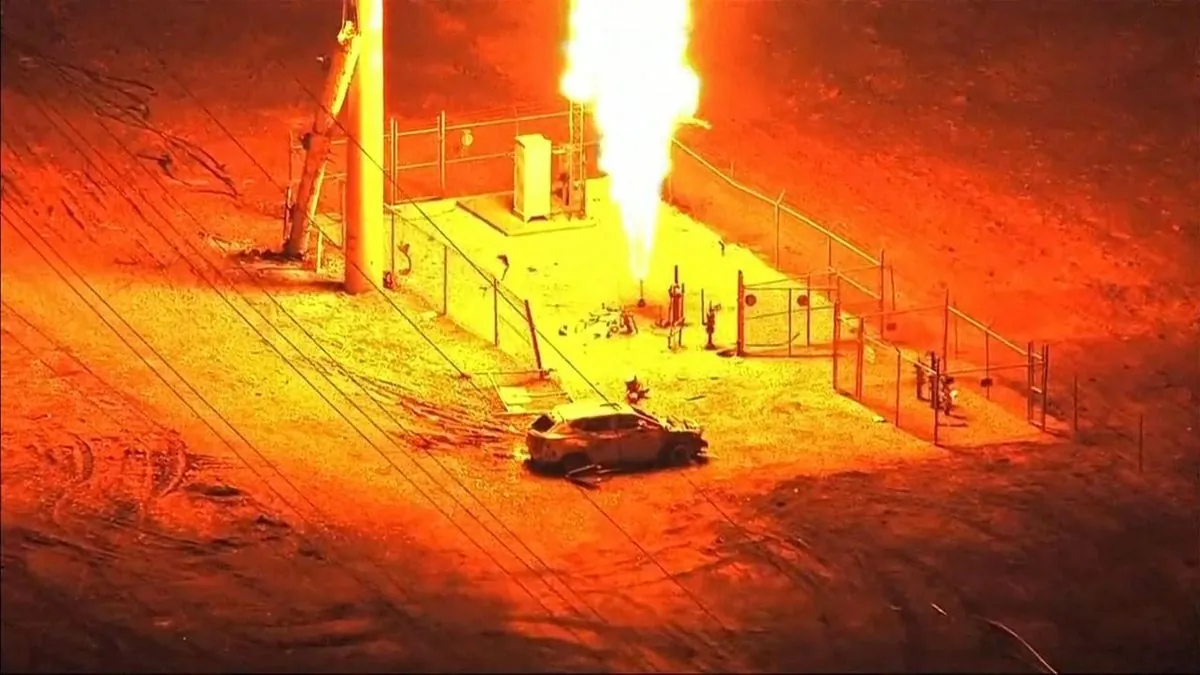Deer Park Pipeline Fire: Driver Identified, Investigation Ongoing
A 51-year-old local man was identified as the driver in a pipeline crash that caused a four-day fire in Deer Park, Texas. The incident's cause remains under investigation.

In a recent incident that shook the community of Deer Park, Texas, authorities have identified the driver involved in a pipeline crash that resulted in a prolonged fire. Jonathan McEvoy, a 51-year-old resident of Deer Park, was named as the individual whose vehicle collided with a pipeline valve, igniting a blaze that persisted for four days.
Lt. Chris Brown of the Deer Park Police Department confirmed that remains discovered in the SUV after the fire were those of McEvoy. The crash occurred on September 16, 2024, in a location adjacent to a Walmart parking lot. The incident forced the evacuation of nearby neighborhoods due to the intense heat generated by the fire.
The cause of McEvoy's death and the reason for the vehicle's departure from its intended path remain under investigation. Brown acknowledged the challenges in determining the exact cause, stating, "We're still gathering information ... but I don't know that we'll ever have an exact determination."
Energy Transfer, the Dallas-based company owning the pipeline, has characterized the event as an accident. Preliminary investigations conducted by local police and FBI agents have not uncovered any evidence suggesting a coordinated or terrorist attack.
Family members of McEvoy, including his former wife Delma McEvoy and son Jonathan McEvoy Jr., have suggested that recent seizures experienced by McEvoy may have contributed to the crash. This information adds a potential medical aspect to the ongoing investigation.
The fire's impact on the local community was significant. The intense heat partially melted vehicles and mailboxes in the vicinity, underscoring the power of pipeline fires, which can reach temperatures exceeding 2,000°F (1,093°C). Residents were forced to evacuate their homes as a safety measure, a common protocol in industrial accidents involving fire or hazardous materials.
Deer Park, a city of approximately 34,000 residents founded in 1892, is part of the Houston metropolitan area and home to several petrochemical plants and refineries. The incident highlights the potential risks associated with the extensive energy infrastructure in the region, as Texas leads the nation in crude oil production.
While vehicle-pipeline collisions are relatively rare, this event underscores the severe consequences that can result from such accidents. The National Transportation Safety Board (NTSB) and the Pipeline and Hazardous Materials Safety Administration (PHMSA) may be involved in reviewing the incident, as these agencies play crucial roles in investigating and regulating pipeline safety in the United States.
As the investigation continues, authorities face the challenge of piecing together evidence from a scene significantly altered by the fire. The incident serves as a reminder of the importance of pipeline safety measures and emergency response plans, which are mandatory for pipeline companies operating the approximately 120,000 miles of pipelines across North America.

The Deer Park pipeline fire incident highlights the complex interplay between urban development, energy infrastructure, and public safety. As the community recovers and investigators work to understand the full circumstances of the crash, the event may prompt discussions about pipeline safety and emergency preparedness in areas with significant oil and gas operations.


































